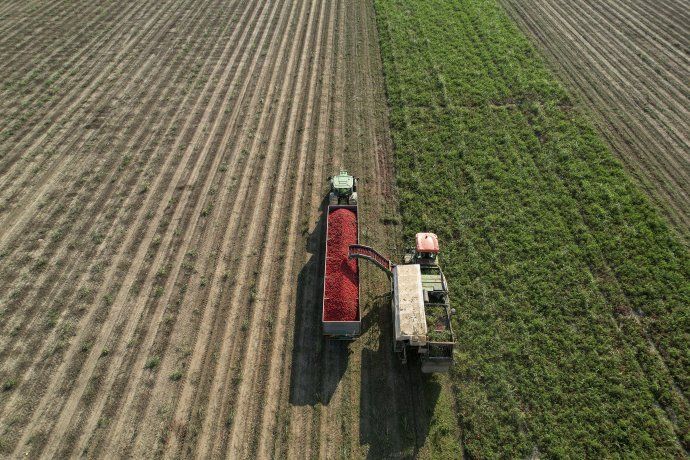In the midst of a favorable climate for the sector of agro Argentinean, Lucas Magnano made his public presentation as the new president of Agricultural Intercooperative Confederation Limited (Coninagro).
The man from Santa Fe, who took office in November until 2026, considered that “we need – like Argentina – to grow. GDP has been declining for many years.; It is necessary to start growing.” That is why he asked “to talk about give signals to some market, and in this case to the agricultural market“.
In this context, he pointed out that “the withholdings are a topic that, sooner or later, They’re going to have to start going down.” “That would be a very good sign to start growing over time; “It would be essential,” he insisted.
Embed – https://publish.twitter.com/oembed?url=https://x.com/CONINAGRO/status/1864039977740280074&partner=&hide_thread=false
Tax pressure in agriculture
At the conference, the head of Coninagro He said that “it is not only the tax burden of the national State, but the consolidated burden is too high in all spheres.” “We have a very large consolidated tax burden. Here it is not only that the national governmentbut the provincial governments and the municipalities They will have to soak their beards at some point,” he claimed.
“In the same way that we producers will surely have to make an effort, We should all make an effort to try to accommodate our numbers a little and achieve subsistence. and don’t let it become a bad word to earn money,” he continued.
“I think it is a job that has to be done together because here no one is responsible for the 100% of the deterioration that the producer had and the null equation that it practically has. Current economic policies have made a very large increase in relative costs with which the producer’s equation has been greatly reduced. We adapt to regional costs, but we have internal prices; So, our luck is set if that does not change in the short term,” he concluded.
The oilseed-cereal complex brought in US$2,000 million in November
As Ámbito anticipated, The Chamber of the Oil Industry of the Argentine Republic (CIARA) and the Cereal Exporters Center (CEC), which represent 48% of Argentine exports, reported that in November companies in the sector liquidated foreign currency for US$1,999 million.
This amount reflects a 99% increase compared to November 2023although it represents a decrease of 21% compared to last October. In the accumulated of the first 11 months of the year, an increase of 25% was recorded compared to the same period of the previous year.
agricultural retention field
There is an interannual recovery in agriculture.
Depositphotos
November’s foreign exchange inflow is attributed to the good pace of grain sales by producers and a robust soybean meal and oil export program. However, both grain exports and the oil industry operate with high levels of idle capacity and face persistent negative margins.
The currency settlementessential for finance the purchase of grains from producers at the best possible priceis mainly linked to the acquisition of grains intended for export, either in their natural state or processed after industrial transformation.
It is relevant to highlight that the income of foreign currency generally precedes the export: about 30 days for grains and up to 90 days in the case of oils and protein flours. These deadlines vary depending on the type of grain and the time of the campaign, although there are no delays in the settlement of foreign currency.
Furthermore, statistical comparisons in this sector are often imprecise due to exogenous factors that affect the grain business cycle. These factors include international price fluctuations, limited supply, differences in quality and volume of products. harvests, weather, holidays, union conflicts, regulatory changes and trade barriers in foreign markets.
Source: Ambito
I am an author and journalist who has worked in the entertainment industry for over a decade. I currently work as a news editor at a major news website, and my focus is on covering the latest trends in entertainment. I also write occasional pieces for other outlets, and have authored two books about the entertainment industry.




